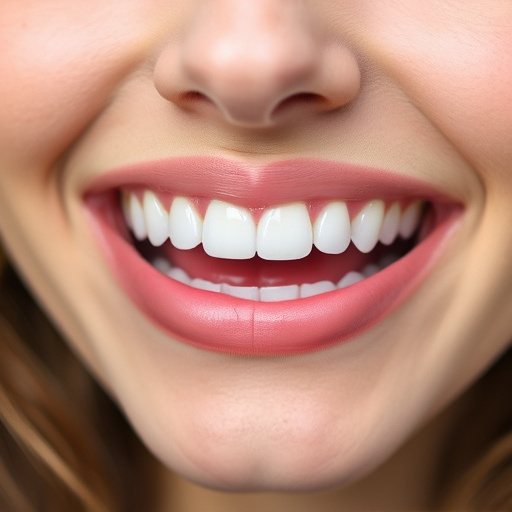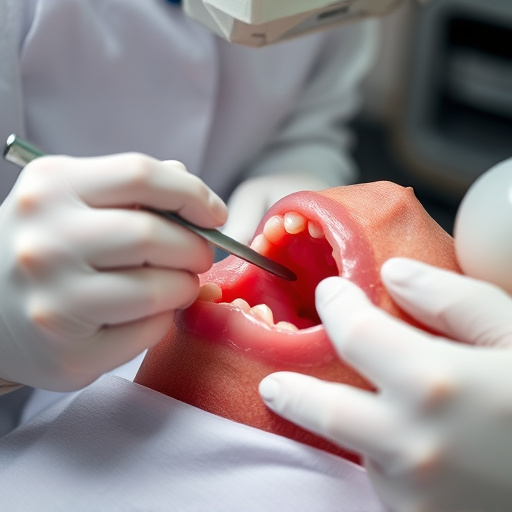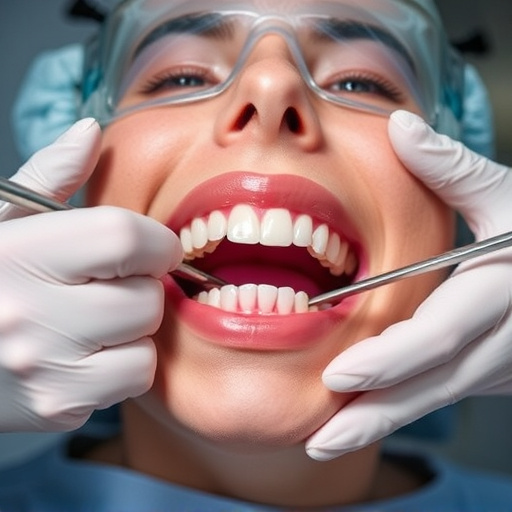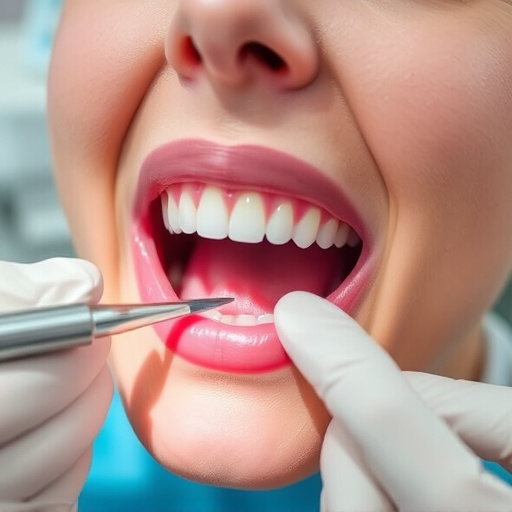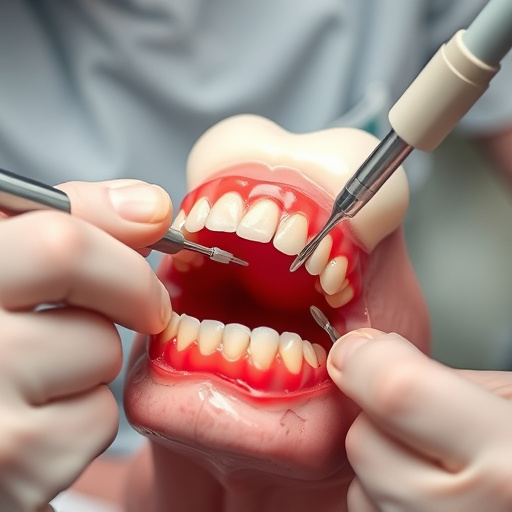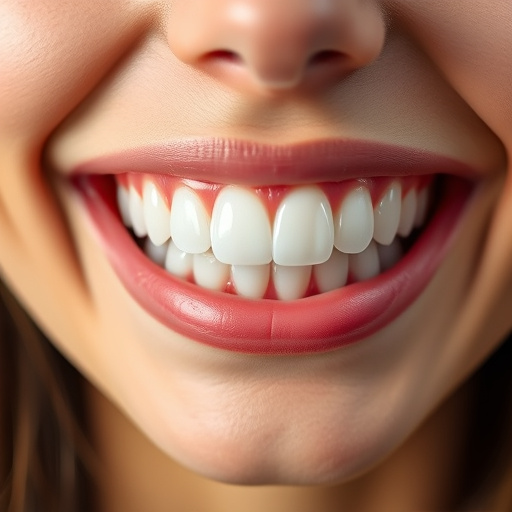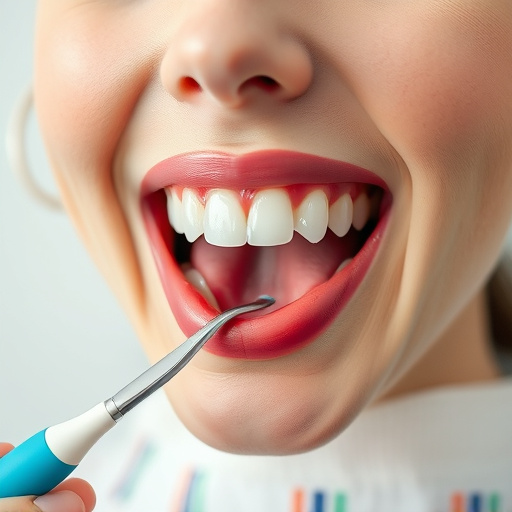Teeth grinding (bruxism) disrupts sleep and causes oral health problems like enamel wear, jaw pain, headaches, and potential hearing loss. Custom-fitted night guards prevent tooth contact during sleep, reducing damage, preserving teeth, alleviating symptoms, improving sleep quality, and enhancing overall well-being. These guards are key in preventive dentistry by mitigating bruxism's effects on sleep and oral health. To select the ideal night guard for grinding, choose those designed specifically for bruxism with shock absorption and ergonomic designs, ensuring comfort and alignment for TMJ patients. Maintaining good sleep hygiene, such as regular schedules and relaxing bedtime routines, is crucial alongside proper guard usage. Parents should consult children's dentistry specialists to address bruxism in kids.
“Sleep disruptions caused by teeth grinding (bruxism) are a common yet often overlooked sleep disorder. This condition can lead to significant health issues, including chronic fatigue and cognitive impairments. In this article, we explore how a night guard for grinding can act as a powerful tool in mitigating these impacts. By understanding the causes and effects of bruxism-related sleep disruptions, you’ll discover how the right night guard can help restore healthy sleep patterns, ensuring you wake up refreshed and revitalized.”
- Understanding Sleep Disruptions Caused by Teeth Grinding
- The Role of Night Guards in Mitigating Grinding Impacts
- Choosing the Right Night Guard and Maintaining Healthy Sleep Patterns
Understanding Sleep Disruptions Caused by Teeth Grinding

Teeth grinding, or bruxism, is a common sleep disorder that can lead to significant disruptions and potential oral health issues. During sleep, many individuals unconsciously clench or grind their teeth, often causing wear and tear on the enamel and underlying structures. This nocturnal behavior can result in jaw pain, headaches, and even hearing loss over time. For those who suffer from chronic bruxism, it is essential to address the problem proactively.
A night guard for grinding is an effective solution designed to protect your teeth during sleep. By placing a custom-fitted mouthguard between your upper and lower teeth, it prevents direct contact and minimizes damage caused by grinding. This simple yet powerful tool is often recommended by dental professionals as part of preventive dentistry. In addition to reducing the risk of dental complications, such as chips or fractures, wearing a night guard can alleviate associated symptoms like jaw strain and improve overall sleep quality, ultimately enhancing your well-being.
The Role of Night Guards in Mitigating Grinding Impacts

Night guards for grinding play a pivotal role in mitigating the disruptive effects of bruxism on sleep quality. These custom-fitted dental devices are designed to protect the teeth and gums from the forces generated during nocturnal clenching or grinding. By physically preventing contact between the teeth, night guards help minimize wear and tear, reducing the risk of tooth extractions and preserving overall oral health.
Moreover, they contribute significantly to preventive dentistry by addressing the underlying causes of sleep disruptions related to bruxism. Regular use can alleviate discomfort, manage stress on the temporomandibular joint (TMJ), and promote restorative sleep patterns. Incorporating a night guard into your routine is a proactive step towards maintaining optimal oral health and ensuring your sleep remains undisturbed throughout the night, enhancing overall well-being through both cosmetic dentistry and preventive measures.
Choosing the Right Night Guard and Maintaining Healthy Sleep Patterns
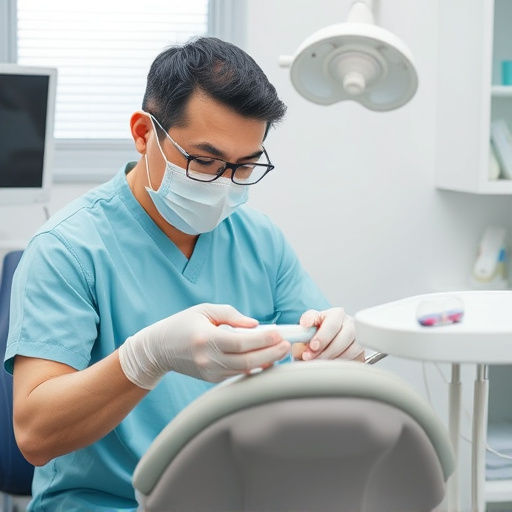
Choosing the right night guard for grinding is a significant step in maintaining healthy sleep patterns. Look for options specifically designed to address bruxism (teeth grinding), as they often incorporate features like shock absorption and ergonomic designs to minimize discomfort and protect your teeth. Custom-fitted night guards, typically offered by general dentistry practices, are particularly effective due to their precise alignment with your dentition. These can be especially beneficial for those experiencing temporomandibular joint disorder (TMJ) or other related issues.
Along with using a suitable night guard, establishing and adhering to consistent sleep hygiene is crucial. This involves maintaining regular sleep and wake times, creating a relaxing bedtime routine, avoiding stimulants like caffeine before bed, and limiting exposure to electronic devices. For parents concerned about their children’s grinding habits, consider consulting a children’s dentistry specialist who can offer guidance on appropriate night guard usage and address any underlying dental or oral health issues related to bruxism.
Night guards for grinding are an effective solution to mitigate sleep disruptions caused by bruxism. By choosing the right night guard and maintaining healthy sleep patterns, individuals can experience improved rest and overall well-being. Incorporating a custom-fitted night guard into your bedtime routine is a simple yet powerful step towards reclaiming quality sleep.
